#sci fi tv
Text
As someone who got into science fiction later in life, I find it quite comforting to see that there are still a lot of people obsessing and discussing about tv shows that were on the air 30 years ago.
It makes me feel much less alone, and connected to a whole group of people who, like me, find some of these stories and characters so compelling they can't not talk about them and share their love for the narratives.
And that's the power of fiction, of stories that make us feel closer to our humanity and to humanity in general.
#star trek#star trek voyager#voyager#st voyager#stargate#stargate atlantis#science fiction#scifi#sci fi tv#sci fi and fantasy#in appreciation of well written stories#what would life be without literature and art?#i'm including tvshows in that category of course#long live science fiction#feel free to add any other show that makes you feel less alone
129 notes
·
View notes
Text
Some interesting thoughts on Severance from Reddit!
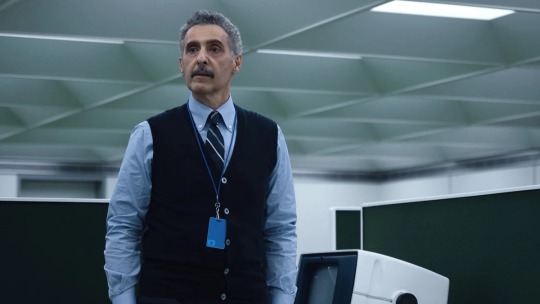
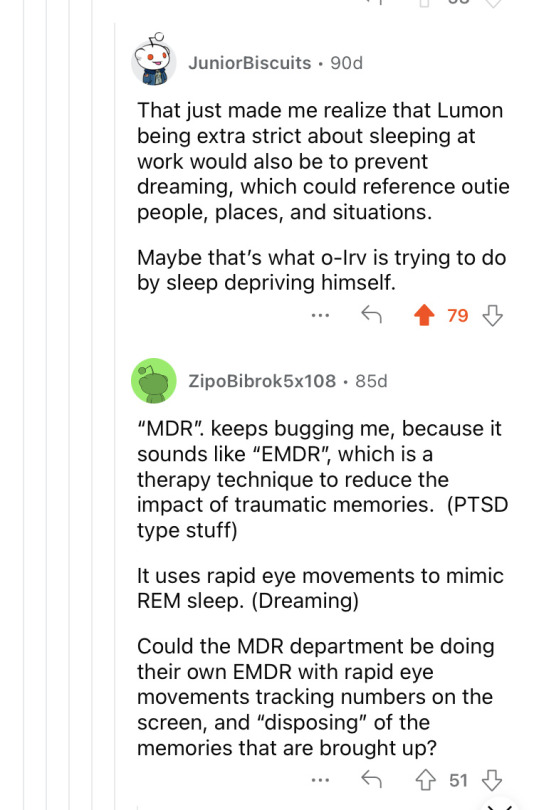
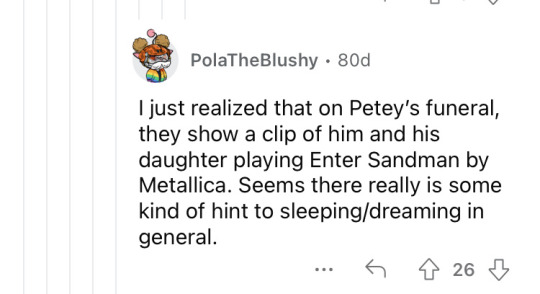
#severance#apple tv#john turturro#mark scout#helly r#irving x burt#sci fi tv#mrs selvig#rem sleep#ptsd#trauma
1K notes
·
View notes
Text



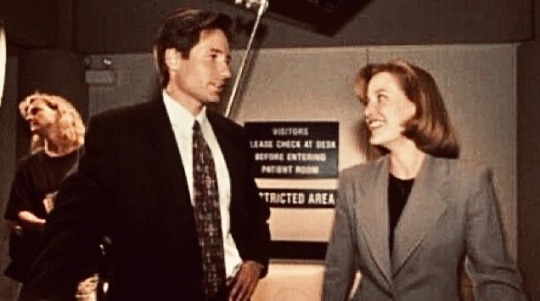

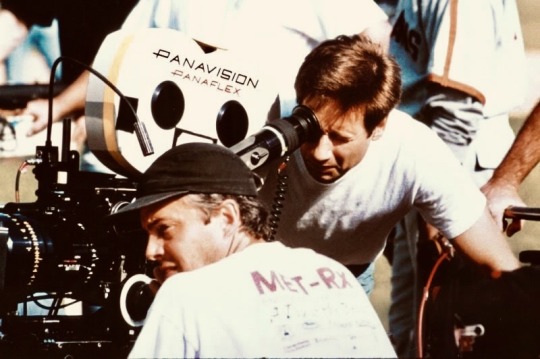


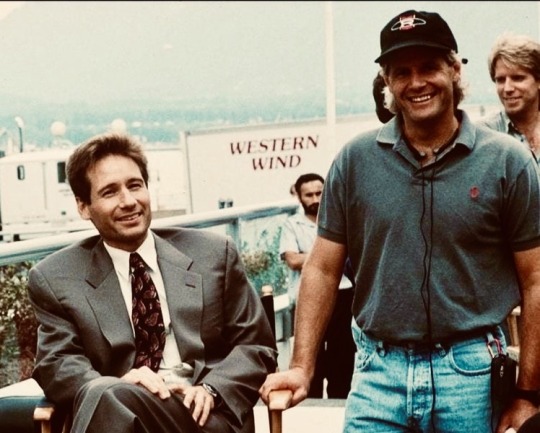
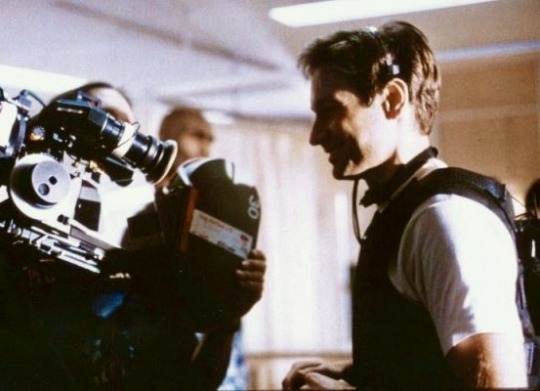
David Duchovny & Gillian Anderson behind the scenes of The X-Files
#the x files#the x-files#txf#x files#xfiles#xf#david duchovny#gillian anderson#david and gillian#david x gillian#ddga#fox mulder#dana scully#mulder x scully#90s tv shows#90s sci fi#90s icons#90s#sci fi show#sci fi tv#chris carter#they’re everything to me#txf cast#the x files bts#txf bts#behind the scenes#gilly#x-files#90s tv
290 notes
·
View notes
Text
I’m a little over halfway into Farscape season 1. I’m convinced now that this show was created because the creators thought the sci-fi genre wasn’t sexy/lewd enough.
I mean…one character had an orgasm from exposure to sunlight. John and D’Argo had wet dreams induced through alien mind control. The very necessary scene where Aeryn confirmed she was wearing John’s underwear by reading the Calvin Klein tag. John and Aeryn nearly having sex because they thought they were gonna die.
It’s gotten to the point where every scene is now coming off as, “this feels a bit sexual”. For example, there was a scene where John was feeding Chiana through the cell doors. It was just eating food, but the way Chiana was eating it felt suggestive.
Me watching Stargate/Star Trek/most other sci-fi shows:

Me watching Farscape:

#farscape#john crichton#aeryn sun#ka d'argo#pa'u zotoh zhaan#rygel#chiana#Farscape season 1#Farscape liveblog#scifi#science fiction#sci fi#sci fi tv#scifi tv#stargate#star trek#science fiction television#john x aeryn#syfy channel#moya#my reaction
39 notes
·
View notes
Text
General Grievous made his first appearance in a animated Clone Wars short on April 8, 2004. The episode also featured Voolvif Monn (the wolfman Jedi) who was chosen to appear as a winner of a Cartoon Network choose a Jedi contest. ("Chapter 20", The Clone Wars, Star Wars TV Event)
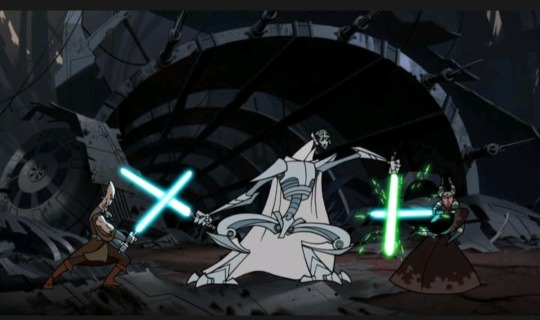
#nerds yearbook#real life event#first appearance#sci fi tv#animation#cartoon#sw#star wars#april#2004#clone wars#genndy tartakovsky#darrick bachman#general grievous#john dimaggio#voolvif monn#jedi#grey griffin#shaak ti#tom kane#yoda#mat lucas#anakin skywalker#daran norris#ki adi mundi#master barrek#kevin michael richardson#andre sogliuzzo#james arnold taylor#obi wan kenobi
27 notes
·
View notes
Text
So...is anyone watching 12 Monkeys for the first time, or like, re-watching it for the billionth time (like me...), because I just REEEEAAAALLY want to rant and talk about this fucking masterpiece of a show to anyone who feels the same!!!!!
#12 monkeys#james cole#cassandra railley#aaron stanford#amanda schull#jennifer goines#emily hampshire#theodore deacon#todd stashwick#tv shows#sci fi tv#sci fi shows#fandom
99 notes
·
View notes
Text
An X-Files expert on the show’s enduring appeal – 30 years on
by Bethan Jones, Research Associate at the University of York

On September 10 1993 the pilot episode of The X-Files aired. Thirty years later to the day, I was at a convention centre in Minneapolis with 500 other fans and the show’s creator, Chris Carter, celebrating its legacy.
Ostensibly a show about aliens, The X-Files swiftly became part of the cultural lexicon and remains there to this day. In part its success was down to the chemistry of its two leads – David Duchovny, who played FBI Special Agent Fox Mulder and Gillian Anderson, who played FBI Special Agent Dana Scully. After all, it was the X-Files fandom that invented the term “shipping” (rooting for characters to get together romantically).
But, as I argue in my new book, The Truth Is Still Out There: Thirty Years of The X-Files, what really made the series successful was its ability to tap into contemporary cultural moments and ask us to really think about the times we’re living in.
When the series began in 1993, the US was still grappling with the effects of Watergate and the Vietnam war, but concerns were also rising about the approaching millennium and the economic and cultural divisions within US society. It also coincided with Bill Clinton becoming president – marking the end of more than a decade of Republican leadership.
It’s little surprise that fears about immigration, globalisation, national identity and technology emerged and were adopted – and sometimes foreshadowed – by The X-Files’ writers. Several episodes throughout the first nine seasons dealt with artificial technology, for example, and Eve, an episode in season one about clones, came four years before the birth of Dolly the Sheep.
Critical theorist Douglas Kellner argued in 1994 that The X-Files “generated distrust toward established authority, representing institutions of government and the established order as highly flawed, even complicit in the worst crimes and evil imaginable”. Though I’d argue it was less that the show generated this distrust and more that it leveraged the growing number of reports about the government’s secretive activities to inspire its storylines.
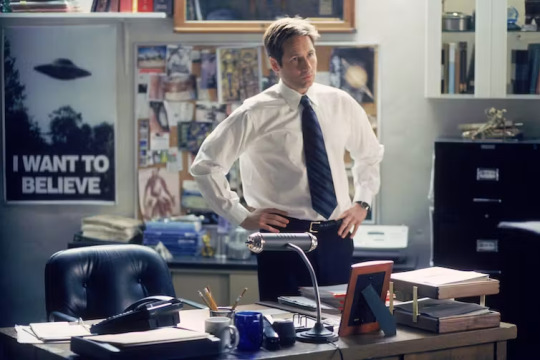
As the public became more aware of the government’s role in – and surveillance of – public life, so too The X-Files considered the ways in which technology could be used as a means of control.
In the season three episode Wetwired, for example, a device attached to a telephone pole emits signals that tap into people’s paranoid delusions and lead them to kill. And in the season six episode, SR 819, a character’s circulatory system fails because he has been infected with nanotechnology controlled by a remote device belonging to a shadow government.
These themes reflected growing concerns about government agencies using technology to both spy on and influence the public.
The X-Files’ enduring appeal
During my X-Files research, carried out with viewers after a revival was announced in 2015, it became clear that the show has remained part of the cultural lexicon. As one fan explained: “The cultural context of conspiracy theories has changed since the beginning of X-Files. Nowadays, every pseudoscience documentary uses similar soundtrack and narrative.”
Of course, the X-Files didn’t invent conspiracy theories, but as one of the show’s writers and producers, Jim Wong, points out, it did “tap into something that was more or less hidden in the beginning when we were doing it”.
youtube
The focus on the rise of the alt-right, disinformation and fake news in seasons 10 and 11 seemed like a logical angle from which to approach the changing cultural context the revival came into. Carter and his co-writers dove straight in to what Guardian critic Mark Lawson calls “a new era of governmental paranoia and public scepticism”, fuelled by the 2008 financial crisis, the fall out of the war on terror and scores of political scandals.
Season 10 saw the introduction of a right-wing internet talk show host who argues that 9/11 was a “false flag operation” and that the mainstream liberal media lie to Americans about life, liberty and the right to bear arms. The parallels to conspiracy theorists like Alex Jones and Glenn Beck were obvious.
Carter’s incorporation of topics like surveillance, governments’ misuse of power and methods of social control meant that seasons ten and 11 were very much situated in the contemporary moment. This is perhaps most obvious in the season 11 episode, The Lost Art of Forehead Sweat, which deals with the disinformation of the Trump era head on. The episode’s protagonist, Dr. They, tells Mulder that “no one can tell the difference anymore between what’s real and what’s fake”.
While The X-Files’ search for the truth in the 1990s may have ultimately been a philosophical endeavour, in the 21st century it is a commentary on how emotion and belief can be more influential than objective facts.
Watching the show again while researching my book, I was struck by how it was dated predominantly by its lack of technology, rather than the ideas it expresses. In the second season episode Ascension, Mulder pulls a phone book off a shelf in his search for Scully – now we’d use Google. But in other aspects the show remains as relevant today as it was in the 1990s, encouraging us to think about the big questions relating to faith, authority and truth.
#science fiction and fantasy#science fiction#sci fi television#the x files#x files#sci fi tv#featured#Youtube
31 notes
·
View notes
Photo

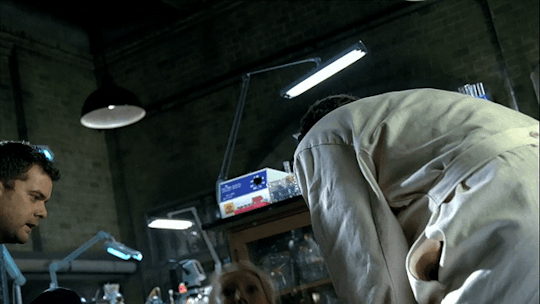
#gif#mine#miblin#fringe#fringe tv show#classic#I miss this trio#olivia dunham#peter bishop#walter bishop#sci fi tv
240 notes
·
View notes
Photo

Land of the Lost (1974-1977)
364 notes
·
View notes
Text
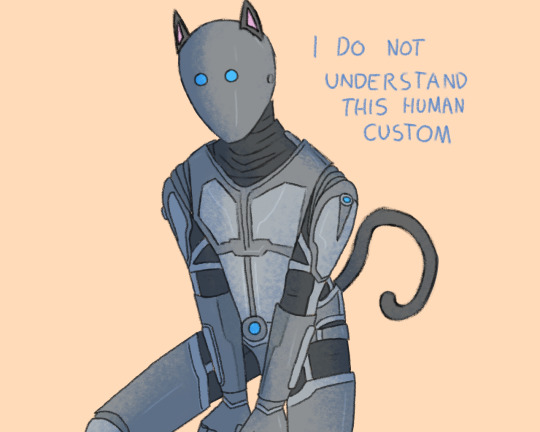
Girl help
62 notes
·
View notes
Text

TV Shows: The X-Files (1993-2002 & 2016-2018)
The truth is out there.
#the xfiles#the x files#x files#x files art#fox mulder#dana scully#the lone gunmen#90s tv#scifi#the truth is out there#sci fi#science fiction#sci fi tv#tv seires#tv show aesthetic#tv show moodboard#moodboard#aesthetic#the smoking man#mulder and scully#the x files fanart#x files fanart
66 notes
·
View notes
Text
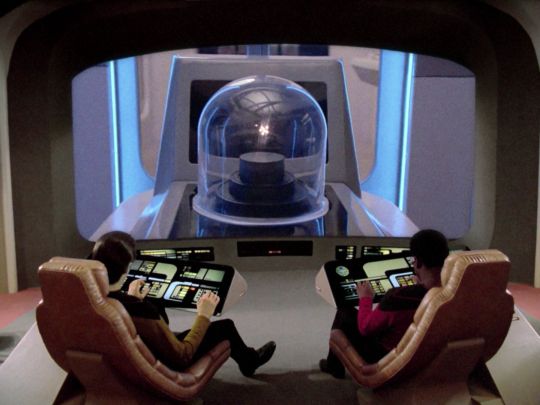
Star Trek: The Next Generation, 117 (Feb. 22, 1988) - “Home Soil”
Teleplay by: Robert Sabaroff
Story by: Karl Guers, Ralph Sanchez & Robert Sabaroff
Directed by: Corey Allen
The Breakdown
The Federation has asked Picard to check in on a terraforming outpost, since the team that was stationed there has gone radio silent. With the Enterprise’s arrival at the outpost, the project director (Kurt Mandl) reluctantly picks up to explain that nothing suspicious is going on, and that Picard is welcome to politely fuck off (I’m paraphrasing, but that’s the gist). Counsellor Troi confirms that Mandl is indeed as shifty as his unmistakably shifty behaviour would suggest; so, Picard sends Riker down to check it out. While there, Riker and his team are introduced to the other Terraformers (Arthur, Bjorn, and Luisa), who kindly provide the audience/away team with a useful exposition dump about how the terraforming process works. They impress upon Riker and co. that every planet designated for terraforming undergoes rigorous vetting to first determine that there are NO LIFEFORMS WHATSOEVER, before they begin the decades long process. Geordi starts to nerd out with Arthur about some of the unique challenges this planet has presented, but Mandl sends Arthur away to ‘go work on the drilling lasers’, because they have a tight schedule to keep. Predictably, the drilling lasers go bonkers and kill Arthur, so now we have a mystery on our hands.
Since it does KIND OF seem like Mandl had his guy killed in a cover up attempt, Picard brings the terraforming team to stay on the Enterprise while his people try to find out what caused the malfunction. During that time, Data has his own run-in with the killer-laser (which he destroys) and is able to determine that something was indeed controlling it, but it wasn’t Mandl. Further inspection of the drilled bedrock leads Geordi and Data to discover some glowing matter that exhibits strange properties, so they have it beamed up to Crusher’s lab. There, it’s determined that they’ve discovered the first known non-carbon life form, and that it’s not only attempting to communicate, but also capable of reproducing. What initially looks like a Christmas light on a petri dish, begins to grow until it eventually forms into an exotic looking plastic crystal, roughly the size of a baseball. While this is all initially very exciting for the Enterprise crew, things get a bit more concerning when the non carbon lifeform reveals that it plans to wage war on the gross ‘water bags’ that attacked it (aka humans). To make matters even more dire, the life form starts taking over the ship’s computer functions, as it grows exponentially more powerful.
So what’s going on? Well, it turns out that the terraformers did indeed notice some exotic energy deposits on their planet, but they didn’t think much of it at the time. Little did they know that their terraforming was endangering the saline water deposits beneath the planet’s crust, which apparently serve as a sort of networking system for the micro crystalline life forms living there. So why was Mandl’s team behaving so secretively? Because they’re workaholics and they don’t like distractions, and that’s… apparently the actual reason for their behaviour. With that out of the way, team-Enterprise figures out they can stop ol’ Crystal (I’m calling it crystal now) by dimming the lights, which were evidently the source of it’s power. Crystal agrees to a peaceful surrender, on the condition that no more Water-Bags return for at least 300 years (which is fair enough), and Riker has it beamed back to the planet. Mandl won’t be able to finish his project, but at least it’s led to an exciting new discovery, and all it cost was Arthur’s life. WORTH IT.
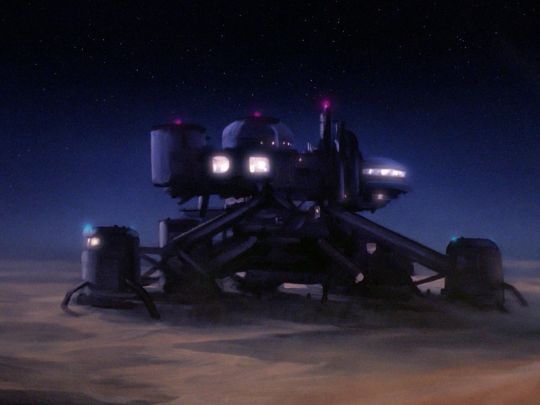

The Verdict.
Considering how many aliens look like humans with forehead prosthetics (Yes, I realize there’s an episode that addresses this), it’s kind of refreshing to see a Starfleet crew discover non-carbon life that isn’t just an abandoned supercomputer, or some other kind of artificial intelligence. Realistically, if humans ever did discover extra-terrestrial life, it seems reasonable to expect that it would be almost wholly unrecognizable to us. To that end, I found myself enjoying the story when it focussed on the mystery of a truly ‘new life’, something alien in every sense of the word.
Where the episode loses me is in the red herring that kicks off the episode, which suggests that Mandl’s team are up to no good. We spend much of first couple acts as Picard and Mandl play cat and mouse with the truth, but the answers we’re given don’t really justify the investment we put into them. Mandl WAS acting very suspicious, and Deanna supposedly could sense he was hiding something, so what exactly was he trying to hide? He didn’t murder Arthur, and apparently neither he nor his team were aware that they were harming an unidentified species. Mandl doesn’t even really give any kind of satisfactory explanation for his lack of decorum when Picard first arrived, leaving us to chalk it up to professional tunnel-vision. So, I guess he was trying to cover up… scheduling delays? I don’t buy it. I love a good red herring as much as the next guy (and trust me, the next guy won’t fucking shut up about them), but a red herring still needs an explanation that holds up to scrutiny.
It would have been a stronger choice to have Mandl (or one of his team) acting with malicious intent, leaving a conflict that would be a little more complicated, and more interesting, to resolve. Star Trek doesn’t always need to be a morality play, but that is the foundation upon which the franchise was built, and there was a decent opportunity to weigh the balance of scientific ambition with ethical restraint. As it stands, ‘Home Soil’ narratively amounts to little more than “Woops. Our bad. Sorry about that.” Perhaps that doesn’t classify the episode as an outright failure, but at it’s best this was a missed opportunity.
2.5 stars (out of 5)
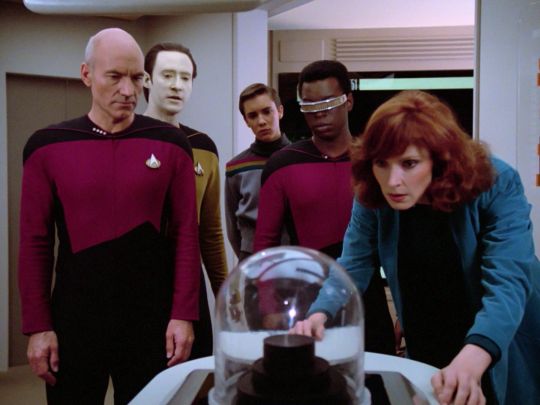

Additional Ovservations
The electronic voice given to the NCL (aka “Crystal”) sounds kind of like a slightly less annoying Dalek. Couldn’t the computer have provided it/them with something that sounds a little more dignified?
Troi-spiracy: I think it would be so funny if it turned out that Deanna Troi was just lying about her empathic abilities. I’m just imagining that she never actually inherited any of her mum’s telepathy, but always felt too awkward to admit it (Lwaxana is kind of the worst, and you know she would never let it go), so whenever someone acts obviously sketchy she’s like “Yeah, I can totally sense they’re hiding something with my abilities that I absolutely have.” Maybe Mandl wasn’t acting sus after all. Maybe he’s just a tense fella, and Picard caught him at a bad time, but then he SEEMED off, so Deanna had to pretend that she sensed something. Lucky it all worked out. This time.
Bad Counselling: Riker asks Deanna for the terraform team’s psychological profile. Troi offers that Luisa is basically talented and imaginative, but otherwise an intellectual scatterbrain, and indicates that Riker’s charms might work on her (to get information), presumably because Riker is irresistible to a grieving airhead woman. Yikes.
Riker enters a darkened lab, and approaches the Crystal in a way that I found hilariously, unintentionally, sultry. But you just know Riker would if he’d had more time.

#star trek the next generation#tng season 1#home soil#retro review#star trek review#troispiracy#bad counselling#deanna troi#william t riker#terraform#terraforming#star trek#star trek tng#sci fi#sci fi tv#80s tv#80s television#80s tv shows#80s tv series#classic television#episodic nostalgia#robert sabaroff#karl guers#ralph sanchez#corey allen
10 notes
·
View notes
Text
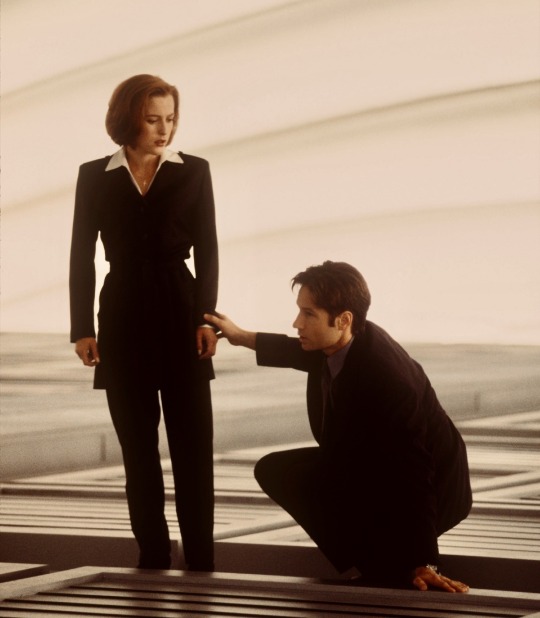
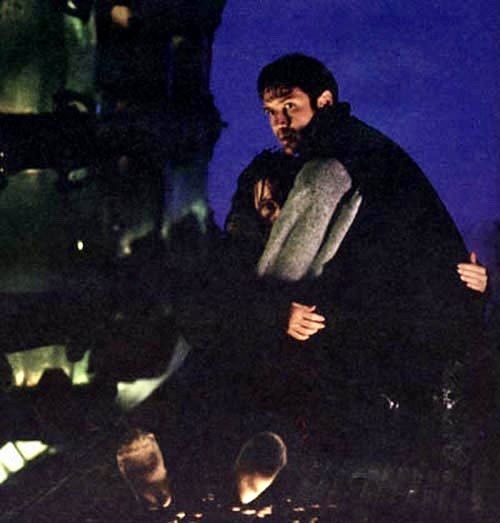
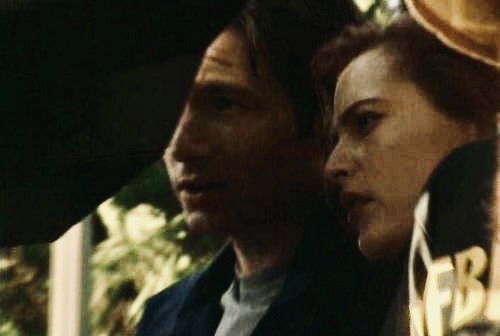

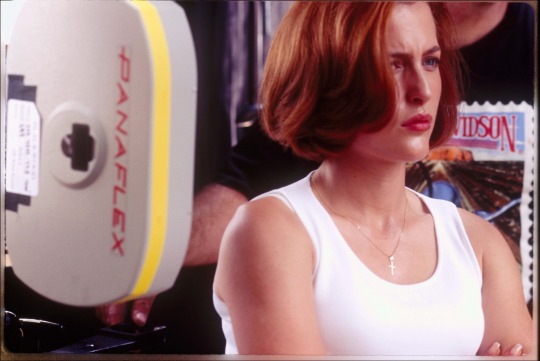
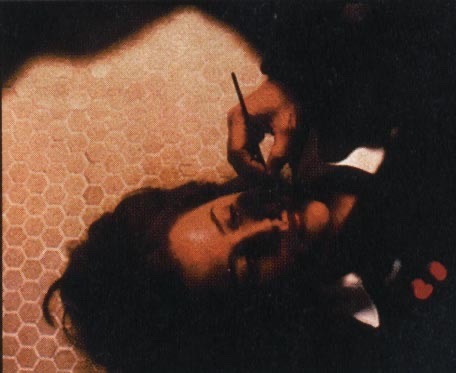
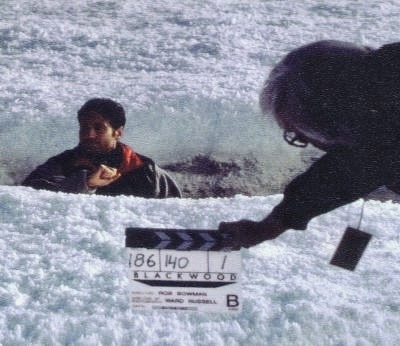
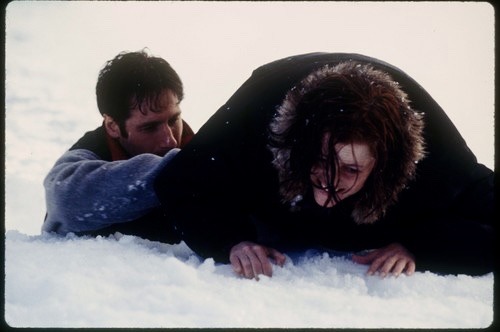
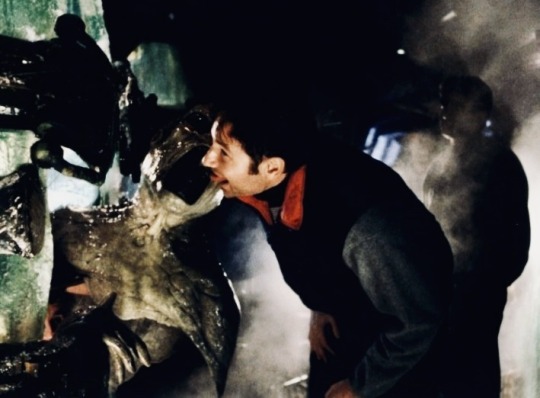
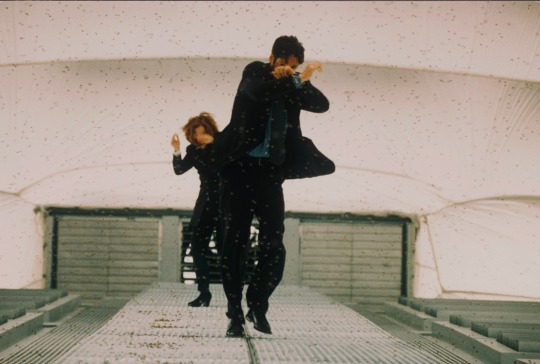
David Duchovny & Gillian Anderson behind the scenes of The X-Files: Fight the Future (1998)
#txf#the x files#x files#the x files: fight the future#the x files bts#behind the scenes#fight the future#gillian anderson#david duchovny#david and gillian#msr#ddga#90s icons#90s#i want to believe#sci fi tv#scifi#dana scully#fox mulder#mulder x scully#ftf#ftf bts#god i love these two#they’re everything to me#david x gillian#txf bts#xf#xfiles#90s movies#90s cinema
1K notes
·
View notes
Text
I've been watching Scavengers Reign (on HBO Max,) and it's sooooo cool and weird. It's got some human characters but then every shot is just filled with little guys of one kind or another.
I classify it as scifi-horror, but it's not properly horror. Just some gruesome bits.
#scavengers reign#tv shows#animated show#sci fi tv#horror tv#just a little guy#and another little guy#and another
7 notes
·
View notes
Text
On December 24, 1998, Special Agent Fox Mulder relunctantly convinced his partner Dana Scully to go with him into a haunted house on Christmas Eve by stealing her car keys. The ghosts (played by Ed Asner and Lily Tomlin) were of a couple who died in a murder suicide pact in 1917. The episode had only four characters making it the smallest cast in the series until the revival. (how the ghosts stole christmas)
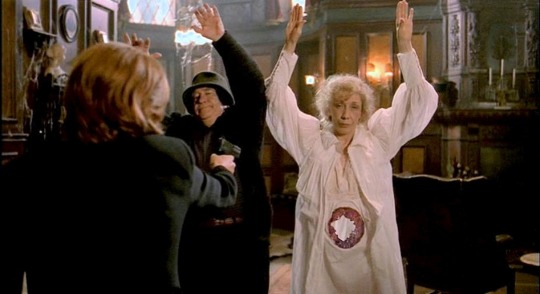
#nerds yearbook#sci fi tv#december#1998#1917#paranormal#ghost#x files#xphiles#xfiles#fbi#christmas eve#chris carter#david amann#fox mulder#special agent fox mulder#dana scully#special agent dana scully#agent scully#agent mulder#david duchovny#gillian anderson#lily tomlin#ed asner#lydia#maurice
33 notes
·
View notes
Text

QUEEN OF SPACE
Margot Shivassi
#pulp scifi#retro scifi#science fiction#sci fi#pulp science fiction#pulp#japanese sci fi#sci fi movies#sci fi tv#sci fi film#sci fi cinema#spacequeen#space queen#queen#queens#queen of space#70s sci fi#70s science fiction#retro#retro science fiction#retro aesthetic#70s aesthetic#1970s aesthetic#70s style
25 notes
·
View notes